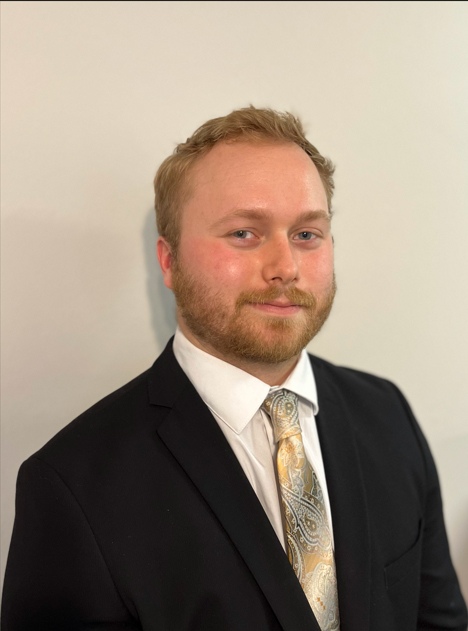Gabe Kuehn ’26: Championing Justice and Mentorship at Widener Law Commonwealth
 Gabe Kuehn, a second-year law student at Widener University Commonwealth Law School, brings a passion for advocacy and mentorship.
Gabe Kuehn, a second-year law student at Widener University Commonwealth Law School, brings a passion for advocacy and mentorship.
Originally from Minersville, Pennsylvania, Kuehn chose Widener Law Commonwealth for its close-knit community and proximity to family. He earned his undergraduate degree in criminal justice, with a minor in political science, from Albright College in Reading, Pennsylvania, where he was a four-year member of the football team.
Navigating the challenges of law school, Kuehn notes that the most difficult aspect of the first-year law student experience is adjusting to the "unknown." He emphasizes the importance of communication and resilience, encouraging students to seek guidance from professors and peers. “If you mess up a practice problem or say the wrong answer in class, it is not always a bad thing because the feedback you receive from professors can be extremely valuable in the future,” Kuehn said.
Kuehn’s legal interests lie in criminal law and personal injury, areas where he believes he can make a meaningful impact. “Most law students want to obtain a law degree because they have some instinct of representing someone who doesn't have a voice to speak on their own behalf,” he said. “Criminal law and personal injury can help achieve this goal because most people in these situations are in need of help from an unfortunate circumstance.”
Beyond his studies, Kuehn is deeply involved with the Center for Equity and Justice, particularly through Widener Law Commonwealth’s Pathway Program, which supports aspiring law students in LSAT preparation. As a first-generation law student, Kuehn understands the challenges of navigating the law school admissions process without prior connections or guidance. His motivation stems from his own experience. “When I was thinking about taking the LSAT, I had no idea where to begin,” he said. “A big inspiration was this sense of being able to help other students with this thought process and, more importantly, help students who do not have the resources or have faced historical challenges with attempting to be admitted into law school.”
Dean andré douglas pond cummings praised Kuehn’s dedication to the Pathway Program and his impact on students. “From the moment Professor Kellyn McGee and I interviewed Gabe, his incredible energy and commitment to meaningful, transformative work were evident,” cummings said. “He has been instrumental in ensuring students have access to opportunities that can change their futures.”
Balancing law school and his work with the Pathway Program requires effort, but Kuehn finds it rewarding. “It’s hard to call being involved with the Pathway Program ‘work’ because it’s something I enjoy doing,” he said. He credits his fellow co-center fellows, Ely Zeigler and Tara Smith, for their shared dedication. “The three of us collectively work together to achieve this common goal, and nothing could get done without the teamwork of us all.”
Through his work in the Pathway Program, Kuehn has honed essential skills such as communication, organization, and teamwork—qualities he sees as integral to his future legal career. His advice to aspiring law students is simple but powerful: “Just keep going. LSAT prep work is not the most fun or enjoyable time in your life, but in order to achieve your goals, it's a necessary time in your life. One day, it will all be worth it.”
For Kuehn, success in law is not measured solely by accolades but by personal fulfillment. “As long as you enjoy what you're doing and you are happy doing it, I find it very hard to believe someone can consider themselves ‘unsuccessful,’” he said.
Interview was conducted in Winter 2025.
Contact Information
Admissions Office
Phone: 717.541.3903
Fax: 717.541.3999
Email: [email protected]
